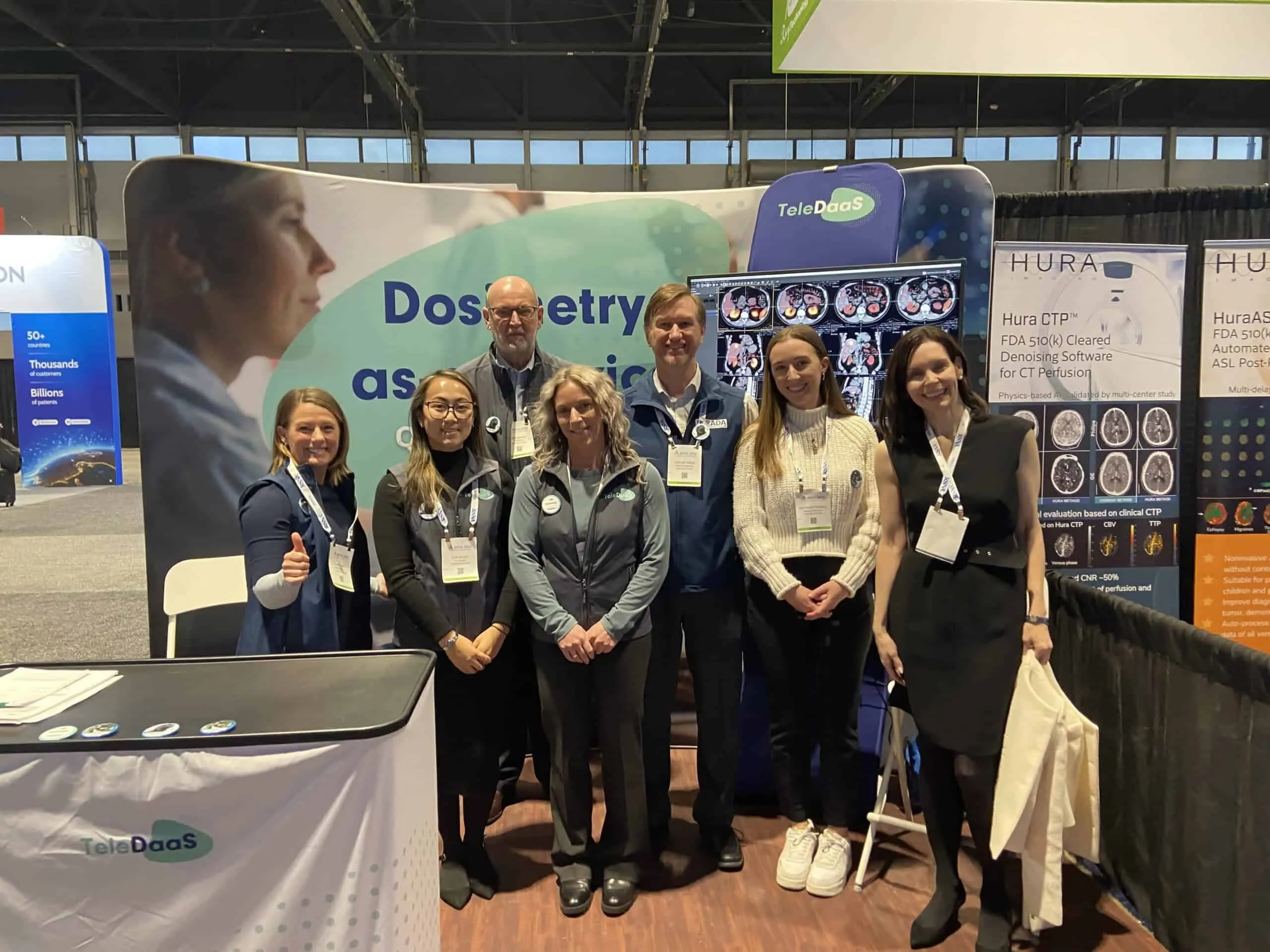Key Themes from The Radiological Society of North America (RSNA) 2023 Annual Meeting
Key Themes from The Radiological Society of North America (RSNA) 2023 Annual Meeting


Key Themes from The Radiological Society of North America (RSNA) 2023 Annual Meeting
I was fortunate enough to represent the MWW Health team and support client partners at The Radiological Society of North America’s (RSNA) 2023 Annual Meeting this week in Chicago, Illinois. The annual, post-Thanksgiving meeting is a must attend for anyone in the healthcare imaging market. It brings together radiologists, technologists, and a myriad of other clinicians and thought leaders from around the globe to collaborate and discuss the greatest challenges and opportunities facing the industry.
“Leading Through Change” was the overarching theme of this year’s meeting, with a heavy emphasis on advancing patient care amidst the ongoing transformation of our health system. The event did not disappoint and left me inspired and feeling encouraged about the future of not only imaging, but healthcare in general. While I could absolutely highlight more, these were some of the key themes that stuck with me.
Artificial Intelligence
Artificial intelligence (AI) is sweeping across healthcare, and imaging is no exception. In fact, radiology may be one of the areas of medicine that is best positioned to capitalize on the emergence of modern AI, with a whole plethora of practical applications that move the needle today. Major players launching AI innovations at the show included the likes of GE, Siemens, and Phillips, just to name a few. Beyond the conference floor, sessions from the event covered a whole range of applications and use cases, including enhanced diagnostic accuracy, streamlined decision-making and improved patient outcomes. Whether walking the floor to demo the latest AI applications or attending speaker sessions, there seemed to be a universal focus on AI to augment people in imaging. While there was a lot of excitement around the potential impact of AI in imaging, it was grounded by a heavy focus on ethical development and utilization.
Health Equity
One of the greatest challenges and opportunities brought into the light by the Covid-19 pandemic has been health equity, and if RSNA is any indication, radiology is no exception. Many attendees engaged in discussions on strategies to extend access to high quality radiological services to underserved populations. Artificial Intelligence was also at the heart of many discussions, specifically focusing on mitigating bias in algorithms and ensuring equal representation. Population health, an oldy at this point but still a goody, also received a fair amount of attention with many discussions focusing on early detection and intervention.
Labor Shortages
While nursing has probably received the most attention for workforce shortages in healthcare, imaging is facing a similar challenge. The combination of an aging workforce and clinician burnout does not bode well, particularly as Boomers continue aging and driving up demand for care, including radiological services. RSNA president Matthew Mauro, MD, even talked about “a perfect storm” that lies ahead for the industry. While these challenges are real, innovative care models and technologies like AI do provide hope and a potential path forward. This means embracing innovative care models and technologies like AI, while never losing sight of patient experience or quality of care.
Tech and People as a Service
While radiology is inherently built on blending tech and human capital, we saw some interesting examples at this year’s show that take this concept to a whole new level. MWW Health client, TeleDaaS, launched at the conference, showcasing a truly innovative model which borrows on the flexibility and scalability of telemedicine and blends it with the proven efficacy of dosimetry. And, you guessed it, they provide it all as a service. The practice will initially focus on supporting clinical research organizations as they continue to navigate the current boom around radiopharmaceuticals. This has the potential to significantly accelerate the speed with which breakthrough cancer therapies are brought to market. While CROs will be the initial beneficiary of this innovative model, there are numerous other potential applications.
Patient (Customer) Experience
The business of imaging is changing in many ways and forcing adaptation; however, it is still an inherently human business. While there was no shortage of complex science, or regulatory protocols, or bits and bytes at the show, there was also a healthy emphasis on an inherently human issue – improving patient experience. In keeping with the broader evolution happening across healthcare, there is a concerted effort in imaging to put the patient at the center of care and provide them with an experience that is more in line with what they’ve come to expect in their consumer lives. Much of the discussion around AI focused on augmenting people to have more meaningful interactions with their patients. There was also quite a bit of discussion about reducing the administrative burden facing radiologists, and freeing up time for more complex or nuanced patients that could benefit from a heavier human hand.
Like most sizeable healthcare conferences, RSNA is typically jam packed with really smart people and groundbreaking innovation. However, this year felt special. I think we are still feeling the halo of the pandemic, and people are just happy to see each other. Beyond that though, there seemed to be a shared energy permeating the show floor and sessions I attended. The understanding that change is coming and a willingness to embrace all that comes with it, left me and many of the attendees I spoke with, feeling encouraged about what the future holds, not only for imaging but healthcare as a whole.
Connect with the MWW Health team:
